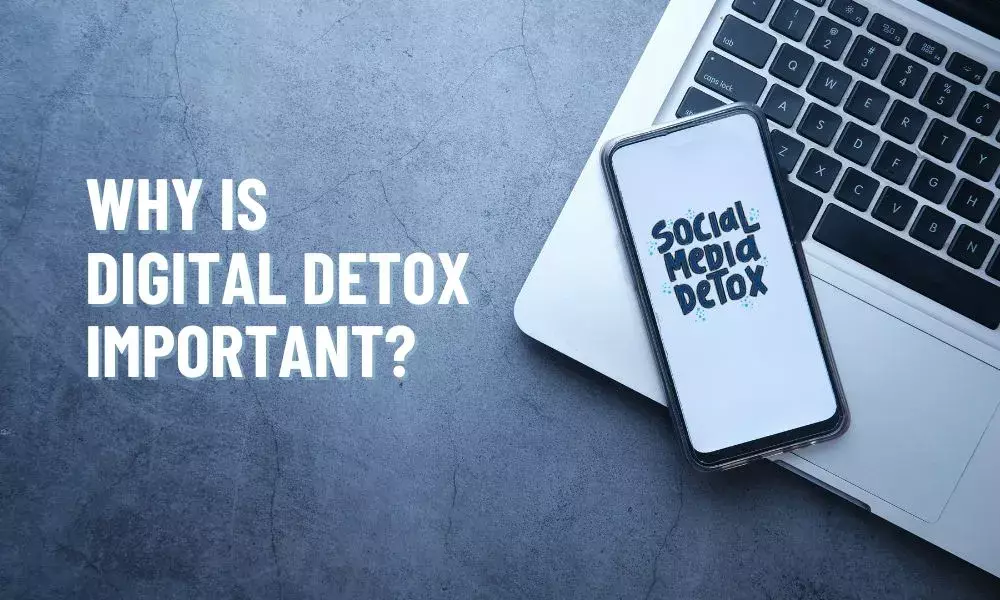The modern technological era has made communication easy by enabling people connect with each other anytime and anywhere. However, too much indulgence in technology, whether it is time spent on smartphones, social media, or in front of other digital screens, can have unlimited downsides on our health.
Excessive technology use can take away time from certain vital activities such as sleeping, exercising, and socializing, which are all important for our well-being. Digital detox is increasingly becoming essential, thanks to our excessive dependence on our digital devices.
Digital detox allows us to spend time in our thoughts and experience real things without distraction.
Here are reasons why we must have a digital break:
-
Increased mood swings, often leading to depression and frustration
-
Feeling insecure or obligated to others
-
Experiencing loss of sleep or difficulty in sleep
-
Excessive dependence on social media
Positives of Digital Detox:
-
Reduced stress
-
Sharper focus
-
Better social interactions
-
More time for self
-
Health becomes priority
Ways to have digital detox:
1. Schedule regular breaks from screens throughout the day
If one must work on a computer, it is hard to avoid screens. This means it is more crucial to prioritize a break. One must set aside frequent breaks during the day. One can set alarms on the phone to remember to take breaks like going for a walk, calling or connecting with a family friend, taking a water break, or eating lunch away from the desk. Most important is to leave the phone behind.
2. Take periodic breaks from all sorts of technology
Taking regular breaks can reduce stress, particularly for those who work non-stop. One can explore new offline hobbies instead of binge-watching online movies or being on social media for long hours. Uninstalling an app that one clicks often and scrolls for long periods can encourage an individual to utilize time in some other activities. Practising mindful thinking or meditation can help you take a break from technology and reduce stress.
3. Try Air-plane mode or sleep mode for a specific time
Putting our phone on air-plane mode or sleep mode, before dinner and until the next morning can prevent long, unnecessary browsing just before bedtime and can help us get a good sleep. Apple and Android users can enable do-not-disturb settings that silence notifications, alerts, and calls. It is a good idea to take advantage of the features that are built into our devices.
4. Adjust your phone settings to limit certain apps
Certain devices allow the user to set limits with screen time and schedule downtime when only phone calls or specific apps are allowed and specified apps have a time limit. These features are termed as “Digital Wellness” and can be found in settings of our phones. Using these features improves our well-being by reducing digital dependence.
5. Create No-Phone Zones
Additionally, one must ban phones and screens from certain home areas, like the bedroom, dining area, or study. Screens can interfere with sleep; therefore, they should be banned, especially in the bedroom. This means one must go into a different room or part of the home to use a device; this may further discourage mindless scrolling.
Technology should be used for our betterment. If it impacts our well-being, its usage must be controlled and restricted.





